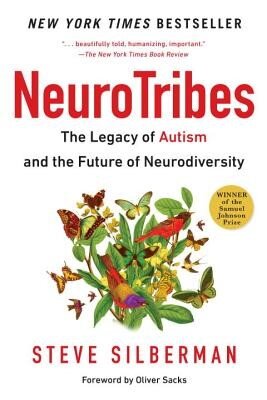For most of my life, I’ve recognized that I’m different, but the stories I’ve told to make sense of myself as an anomaly have changed a lot over the years. This is as true for the explanations I’ve given to others as it is for the narrative I’ve told myself. A turning point that brought those internal and external stories closer together was being diagnosed with autism and ADHD in my thirties.
Somehow this news came as equal parts shock and a “no duh” confirmation of what I already knew. After the first diagnosis, I was trying to process it with a therapist and she mentioned something about coping with disability. Completely oblivious to my internalized ableism, my knee-jerk reaction that I defended for years was to reject that framing as irrelevant and perhaps even insulting. The therapist took the hint about how little I could handle at that moment and didn’t push the point. Years later, I can acknowledge the fear I instinctively sought to hide as well as the combination of ignorance and denial that caused it.
Writing this now, I’m by no means fearless when it comes to sharing about disability, but I think I’m a little less ignorant and a lot more accepting. Today, I recognize that being disabled is part of who I am, and it’s neither my fault nor something in me that requires fixing. This isn’t a change that happened through therapy or from studying and self-reflection, even if all three of those played some part. The key to changing my perspective was socializing with people who valued their shared experience of disability as the foundation for building an empowering community.
This didn’t happen all at once and it began in snippets online through finding YouTube channels like “How to ADHD” by Jessica McCabe and learning about the neurodiversity movement from popular writers such as Steve Silberman and John Elder Robison. As I quickly learned, evading the term disability wasn’t uncommon even in forums in which it seems like disability is the central issue. For example, more than four years after starting her ADHD-focused channel, and with more than half a million subscribers, Jessica McCabe grapples with questions like, “Am I disabled?” and “What does disability really mean?” in her most recent video. I’m not highlighting this as a shortcoming of Jessica’s, but I share it as an example of how strongly stigmatized the word disability is given that identifying with it can be a struggle even for those whose relative celebrity status is built around disability in principle if not in name.
Moving from online to in-person interactions, I enrolled in a graduate program at the University of Illinois at Urbana-Champaign and accelerated my opportunities to explore what disability could mean. Unlike during undergrad, having a documented diagnosis meant I could seek accommodations through the campus disability office. From there, I met a group of students interested in forming a local chapter of a national organization called DREAM (Disability Rights, Education, Activism, and Mentoring).
Within these newfound friendships, I saw how the word disability didn’t function as an impairment-based label that defined us by what we couldn’t do. Instead, DREAM allowed me to experience how acknowledging disability as part of my identity could connect me with a powerful movement of people who are unwilling to accept the limitations placed on them by an ableist society. Disability can look extremely different from one person to the next, or it can “look” like nothing at all as poignantly noted by Israel Sanchez in his IL LEND November 2020 blogpost in which he chaffs at being told, “You don’t look like you’re autistic.” I’m sure the stories I tell to make sense of my life will continue to change, but I’m confident that as they do, my use of the word disability will increasingly be associated with references to supportive community rather than my own impairment.










